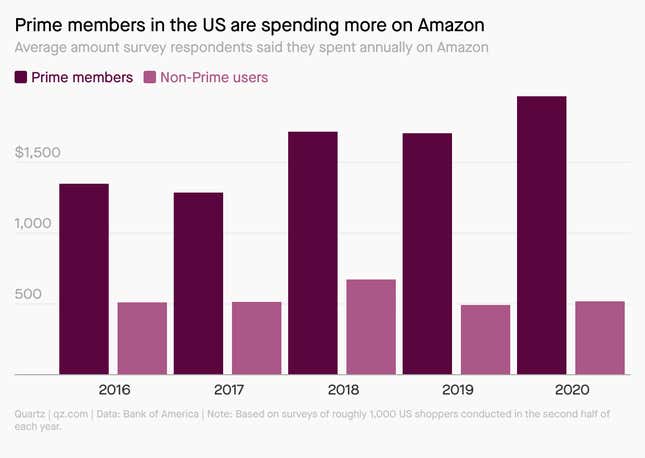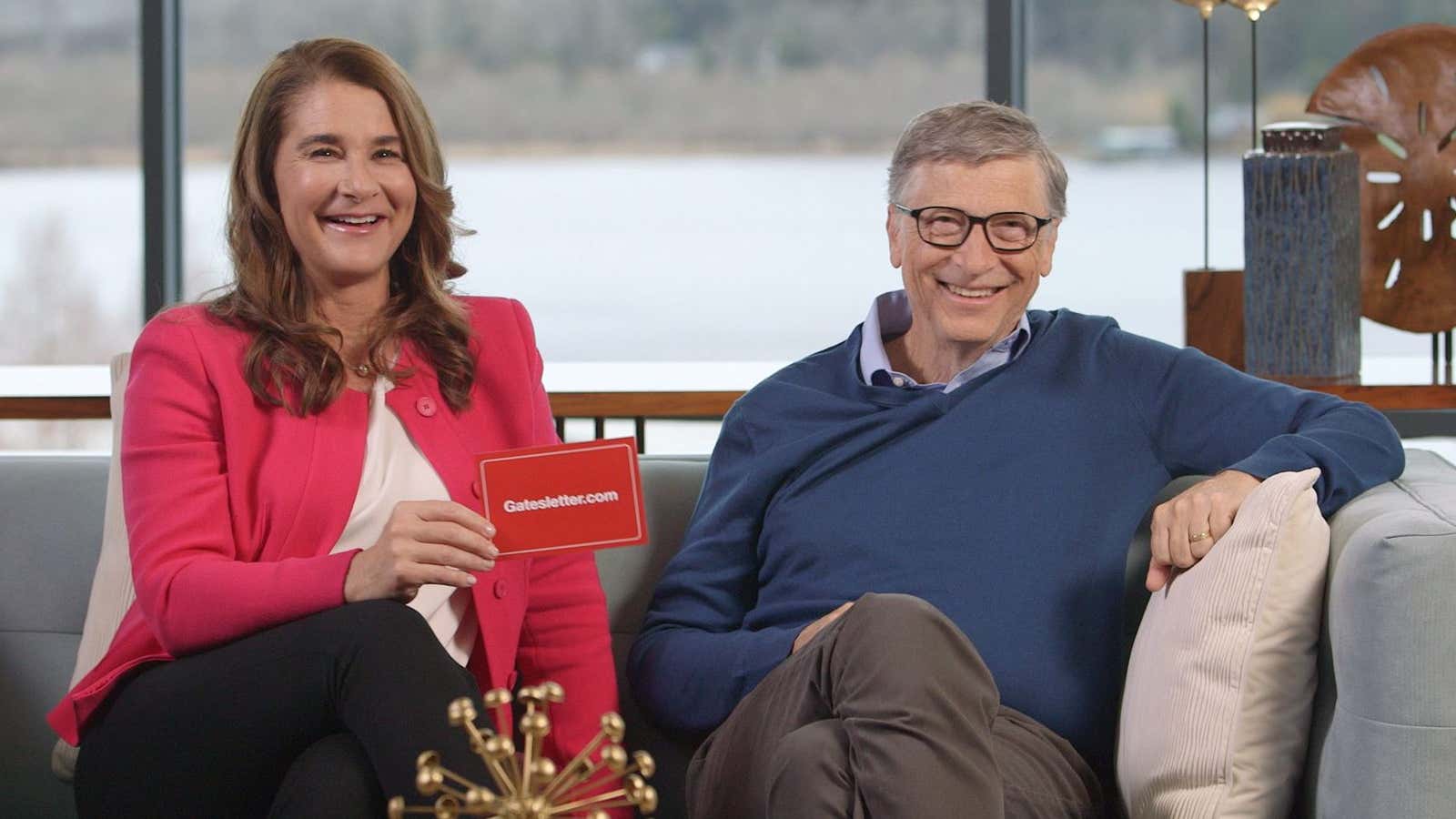Good morning, Quartz readers!
Here’s what you need to know
Bill and Melinda Gates are divorcing. “We no longer believe we can grow together as a couple,” they said at the end of their 27-year marriage, but will continue to jointly run their foundation.
A Mexico City metro collapse killed at least 20 people. The incident took place on Line 12, added in 2012 to one of the busiest transportation networks in the world.
The world’s biggest energy firm is once again booming. Saudi Aramco followed rivals Royal Dutch Shell and BP in announcing a sharp recovery in the first quarter of 2021, with adjusted net income of $21 billion.
The Indian government claims Covid infections are slowing down. But there are still oxygen shortages and record death tolls, while experts warn that the situation will worsen. The IPL cricket tournament was suspended.
Covax secured more vaccines for lower-income countries. The United Nations-backed program made a deal with Moderna for 34 million more doses this year.
Joe Biden is allowing thousands more refugees into the US. The US president raised the annual cap to 62,500, following criticism for initially keeping Trump’s 15,000 limit in place.
What to watch for
Real estate listing platform Zillow reports its quarterly earnings today after the stock market closes in New York. Its results—from the activity of its users to its revenue—are closely tied to the health of the US housing market. The CoreLogic Home Price Index for March 2021 is also released today. February’s data, published in early April, showed a 10.4% increase in house prices year over year.
Covid-19 lockdowns and new workplace policies have driven demand for homes with yards and office space. Low interest rates spurred by central banks’ attempts to support the hobbled global economy have made buyers’ budgets go farther. The US’s average 30-year mortgage rate is rising but remains below 3%. That’s down from 3.72% at the beginning of 2020, meaning a $1,500 monthly mortgage payment now buys a $600,000 home instead of a $550,000 home.
The US could be entering another housing bubble, or these rising prices may just reflect new long-term demand for homeownership. Either way, it’s a seller’s market, as any of your American home-buying friends will tell you—most likely over and over again.
Charting Amazon Prime users’ spending
Prime has long served as the engine driving Amazon’s business, pulling new users in via perks such as streaming video and music and locking them into shopping on Amazon with fast, free shipping. The average amount US Prime members spend on Amazon also appears to be growing, just like the pile of boxes on your front porch.

Prime’s spread among US households could be slowing, however, as it starts to reach a saturation point. However, it still has plenty of room to grow overseas. In recent months, Amazon’s international sales have soared, supercharged by pandemic-related lockdowns in places such as the UK and Europe.
How a small startup keeps its employees
Finding, attracting, and retaining top talent is a big challenge for tech startups in Africa. In an attempt to stanch the flow of employees from his small startup to bigger companies, Daniel Yu, founder and CEO of Sokowatch, hit upon an employee stock ownership plan in 2018 that now covers more than 500 employees.
👋 Upon hiring, Sokowatch gives full-time employees an offer package with stock options that fully vest in four years.
📆 After one year, they can exercise options, plus more options monthly over the next three years. They can also sell their stock options through a secondary sale, where Sokowatch investors can buy them.
🤝 But an employee stock ownership plan only works if there’s a supportive corporate culture as well.
Yu believes the plan helped Sokowatch retain a staggering 98% of its employees last year, and thinks it could catch on within the African tech industry. Indeed, some say it already has.
✦ What happens to those stock options once the company goes public? Our latest field guide explores how the IPO as we know it is changing. Not a member yet? Try it free for a week!
Handpicked Quartz
🥵 Ready or not, we need to start talking about menopause in the workplace
✈️ How the wealthy seem to immigrate as they please
😷 Who are the CDC’s new mask guidelines really for?
🐙 Oscar-winning My Octopus Teacher is a complicated success for South Africa
Surprising discoveries
New Japanese vending machines sell only edible insects. The nine options include deep-fried or dried crickets, locusts, and silkworm chrysalises.
An amateur archaeologist discovered a medieval logboat. He had been looking for a dolphin named Kevin, who is named after Kevin Costner (naturally).
A cryptocurrency called SCAM is worth $2.5 million. A TikToker named Dre made Simple Cool Automatic Money as a joke.
In the UK’s biggest TV drama in decades, cops are the villains. Of course, cops are also the heroes in Line of Duty, a BBC show about an anti-corruption unit.
Cat food maker Fancy Feast made a cookbook for humans. The dishes are “inspired by” the company’s new line, Petite Feast.
Our best wishes for a productive day. Please send any news, comments, totally non-scammy crypto tokens, and Kevin the dolphin to hi@qz.com. Get the most out of Quartz by downloading our iOS app and becoming a member. Today’s Daily Brief was brought to you by Hasit Shah, Jane Li, Mary Hui, David Yanofsky, Susan Howson, Marc Bain, Carlos Mureithi, and Liz Webber.
